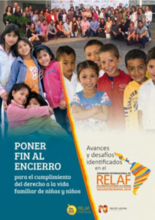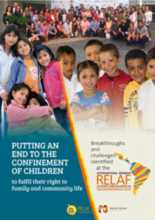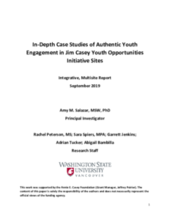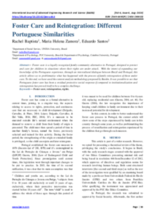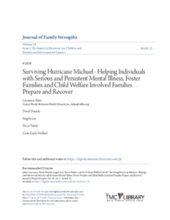This page contains documents and other resources related to children's care in the Americas. Browse resources by region, country, or category.
Displaying 1281 - 1290 of 3197
This article describes CONCEPT, a multi‐year initiative to enhance capacity of the US state of Connecticut's child welfare system (CWS) to provide trauma‐informed care.
Helping Children Worldwide is hosting Rising Tides: The Future of Global Missions, on September 6-7, 2019 in Chantilly, Virginia, USA.
This radio segment from WNYC describes a new audio-visual exhibition in New York City that tells the stories of 100 "former orphan" adoptees born in South Korea who are now adults living all over the world.
This article from CNN describes findings from new report outlining the impacts of family separation on migrant children in the US.
"According to a new evaluation from a top research institute, New York City’s Administration for Children’s Services (ACS) may have figured out one way to do that: Hire more case planners for foster youth," says this article from the Chronicle of Social Change.
Este informe de RELAF resume las presentaciones y discusiones del Seminario Internacional 2019 de RELAF.
This report from RELAF summarizes the presentations and discussions from RELAF's 2019 International Seminar, "For the right to family and community life. Putting an end to the confinement of children deprived of parental care."
The purpose of this study is to synthesize and share the Jim Casey Youth Opportunities Initiative’s approach to youth engagement. The study’s findings communicate how authentically engaging youth can help both the Jim Casey Initiative and youth-serving systems achieve their desired results.
This article examines the family reintegration process for those in care in Portugal and Brazil.
This article highlights the experiences of staff who responded to the needs of individuals, families, and communities following Hurricane Michael in Florida, USA in October 2018 and is focused on the perspectives of individuals working in the field.


